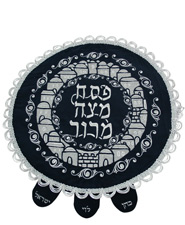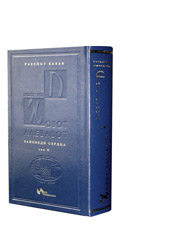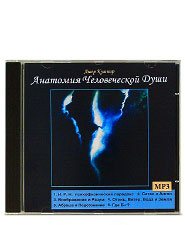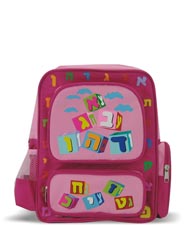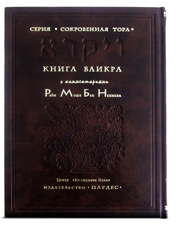
Teshuva in Prison
Rabbi Moshe Muterperel never imagined that he would be spending time in prison
Rabbi Moshe Muterperel never imagined that he would be spending time in prison – until he was approached by the director of Toldos Yeshurun, an organization devoted to strengthening Russian Jewry, asking him to learn with a new baal teshuva interned in the Maasiyahu Prison. As a result, every Wednesday Rabbi Muterperel travels to the Maasiyahu prison in central
The first time Rabbi Muterperel entered the Maasiyahu Prison, he was petrified. “It’s like going to a different planet. Everything was taken away from me – my papers, my cell-phone, my wallet. Everything,” he recalls.
“The moment I started learning with Reb Mitzky, it was obvious that he had a strong desire to pull himself out of the muck. After we had learned together for several weeks, he told me, ‘When I leave this prison, I don’t want to return. So I had better change,’” Rabbi Muterperel says.
Once Reb Mitzky began keeping Torah and mitzvos, he was transferred to the separate quarters reserved for orthodox prisoners. But since he had not been shomer mitzvos when he entered the prison, he was not eligible for the glatt Kosher meals served there.
“I first learned about the problem when Reb Mitzky asked me if it is an aveira not to eat fleishigs on Shabbos and Yom Tov,” said Rabbi Muterperel. “But there was nothing I could do to help him. Prisoners are not allowed to receive food packages from the ‘outside.’”
Reb Mitzky’s spotless record earned him permission to work at a regular job by day, and return to the prison by night. “By that time, he had advanced to learning Gemara,” says Rabbi Muterperel. “Reb Mitzky’s dream was to learn in a yeshiva. Working at a regular job was a step in the right direction.”
Reb Mitzky found a job at an ironwork factory. His behavior was flawless. The prison authorities we so impressed that they granted him permission to transfer to a yeshiva.
His coworkers were furious. How could a mere criminal learn in a yeshiva while they slaved away in the factory? Two of the workers informed Reb Mitzky that they were plotting to get him in trouble with the authorities. Not only would he lose his chance to learn in a yeshiva, he would also lose the privilege to work outside the prison, as well as early parole for good behavior.
Rabbi Muterperel continues, “That evening, when I learned with Reb Mitzky he was literally trembling with fear. I told him to daven. He later told me that after I left, he prayed as he had never prayed before.”
The following night, an exuberant Reb Mitzky phoned Rabbi Muterperel. The workers plotting his downfall had quarreled and were not on speaking terms anymore. They were not about to work together to get Reb Mitzky in trouble. “This was just one example of the tremendous siyata d’Shemaya he experienced on his path towards teshuva,” said Rabbi Muterperel.
From Prison to Yeshiva
When Reb Mitzky was given permission to learn in a yeshiva, Toldos Yeshurun helped him find a suitable framework and then allotted him a monthly stipend to cover expenses.
Rabbi Muterperel explains, “Although prisoners are provided with food and lodgings, they have to pay for extras such as telephone calls, glasses and transportation.”
Reb Mitzky is currently learning twelve hours a day. He hopes to be released on parole within the next six months. He plans to learn in yeshiva for a year or so, thereby developing strong Torah foundations before marrying and rebuilding his life. Rabbi Muterperel credits Toldos Yeshurun’s guidance and financial support as a vital part of his success in bringing Reb Mitzky get to where he is today.
Toldos Yeshurun – Building Russian Jewry
Toldos Yeshurun is the largest existing educational network for Russian Jewry. The overriding majority of olim learning in any one of its sixty eight evening programs are professionals – doctors, lawyers, computer programmers, and even a few rehabilitated criminals. By integrating them into the religious community, Toldos Yeshurun is developing a strong, self-supporting population of Russian-speaking Torah-true Jews, who will use their unique talents to benefit the broader community.
Toldos Yeshurun operates the length and breadth of
Rabbi Muterperel himself fled from the former
“These young Russian-speaking talmidei chachamim learn with tremendous mesirus nefesh,” says Rabbi Yehudah Avrech, Toldos Yeshurun’s vice-president. “Most of them have zero support from their families and barely manage to feed their children.”
The small stipend these avreichim receive for their kiruv work, in addition to their regular Kollel payment, enables the Russian avreichim to continue learning, thereby providing destitute families with the ability to become self-supporting.
“Twenty years ago, when the Russian Jews first arrived, the American and Israeli Jewish communities joined together to help the new immigrants,” says Rabbi Ben Tzion Zilber, head of Toldos Yeshurun. “Now that the foundations are built, it is even more important to continue investing in the future and support Toldos Yeshurun in creating a strong, Torah-true community.”




